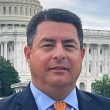It’s time to chart a new course
When Congress created the FCC with the enactment of the Communications Act of 1934, the times were far simpler. The commission was created primarily to act as a watchdog to ensure that the fledgling commercial broadcast sector acted in the best interests of the public. There weren’t a lot of broadcasters back then, and the biggest concern was whether they would use their spectrum — a public trust — responsibly by generating a sufficient amount of news and public-affairs programming.
Today, the FCC has way too much on its plate. Even if it didn’t, today’s times are anything but simple, given the way in which technology has developed. It seems impossible for a single agency to keep up with it all — especially when things change so often, and so quickly.
Meanwhile, public-safety communications are more important than ever, given the times. Consequently, the sector needs its own designated agency, one that would not only ensure that the proposed nationwide broadband network comes to fruition (see cover story, page 32) but also would look at first-responder communications holistically in order to create a roadmap to the future. The FCC is too busy smothering the brush fire of the day — actually several brush fires, given the scope of its authority — to spend much time contemplating what might be lurking over the next rise.
Should it legislate a new government entity that would oversee public-safety communications, Congress also would need to ensure that such an entity has the wherewithal to operate. It would need to write into the legislation a viable funding mechanism for the new agency and the nationwide network it would oversee. Yes, that means a new tax or two. So what? We can afford it. I went to a baseball game at the end of September. Given that the home team was hopelessly out of the pennant race by that point, the game was meaningless. The cheapest seat in the stadium is $20. Yet, there were 30,000 tickets sold — in a bad economy. Yes, we can afford this.
Public-safety communications are too vital to continue to be treated as the proverbial red-headed stepchild. In a post-9/11 world, we live in constant anticipation — if not fear — of the next terrorist attack on our soil. Even without that possibility, the world is a dangerous place. First responders need — and we need them to have — the best possible communications tools. But it’s not going to happen if the status quo remains. It’s time for today’s Congress to muster the vision demonstrated by their predecessors seven decades ago.
Related Stories

















